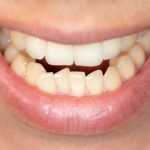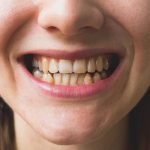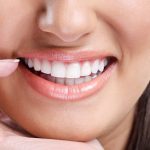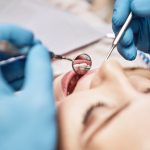Say Goodbye to Rotten Teeth with these Simple Fixes
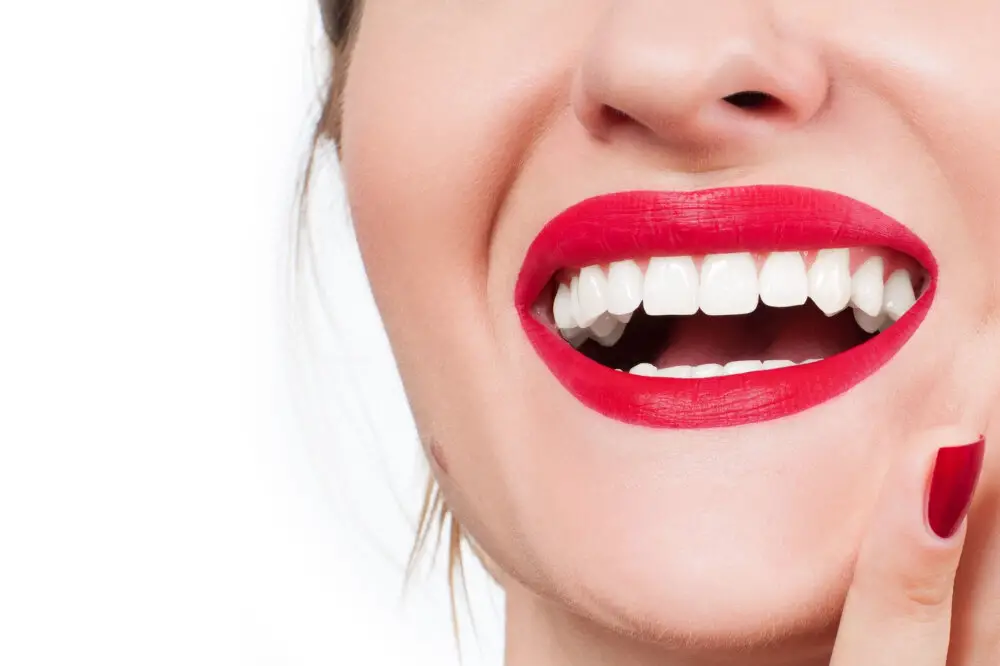
Having a perfect smile is a dream for many people. However, stained or rotten teeth can ruin that dream, making them feel anxious and self-conscious. Maintaining good oral hygiene is essential to keep your teeth healthy and prevent tooth decay. Although brushing and flossing are crucial, they are not always enough to keep your teeth healthy. Your diet, lifestyle, and even genetics can affect your dental health. Fortunately, there are some simple fixes that can help you say goodbye to rotten teeth and achieve that perfect smile you’ve always wanted. One of the primary reasons for rotten teeth is poor dental hygiene. Bacteria buildup in your mouth can cause tooth decay, leading to cavities and gum disease. Brushing your teeth twice a day, flossing, and using mouthwash can help eliminate bacteria and prevent tooth decay. However, it’s also important to pay attention to your diet. Sugary and acidic foods and drinks can erode your tooth enamel and promote the growth of harmful bacteria. By avoiding sugary foods and drinks and consuming more fruits, vegetables, and calcium-rich foods, you can help maintain good oral hygiene and keep your teeth healthy.
Oral health is of great importance as it is linked to overall health and well-being. Poor oral health can lead to various dental problems, such as cavities, gum disease, and tooth loss, which can negatively impact a person’s ability to chew and speak properly. Additionally, poor oral health has been linked to serious health issues such as heart disease, stroke, and diabetes. Maintaining good oral hygiene practices such as brushing and flossing regularly, avoiding sugary and acidic foods, and visiting the dentist regularly can help prevent these issues and promote overall health and wellness. Taking care of your oral health is not only important for a beautiful smile but also for a healthy body.
Rotten teeth, also known as tooth decay, is a common dental problem that occurs when bacteria in the mouth produce acids that erode the tooth enamel. Poor oral hygiene, sugary and acidic foods, and drinks, as well as frequent snacking, are the main causes of tooth decay. When left untreated, the decay can progress to deeper layers of the tooth, leading to toothache, infection, and even tooth loss. Other risk factors include dry mouth, smoking, and certain medical conditions that affect the teeth and gums. However, with proper dental care, such as regular brushing and flossing, limiting sugary and acidic foods and drinks, and visiting the dentist for check-ups and cleanings, tooth decay can be prevented and treated.
Brushing Techniques
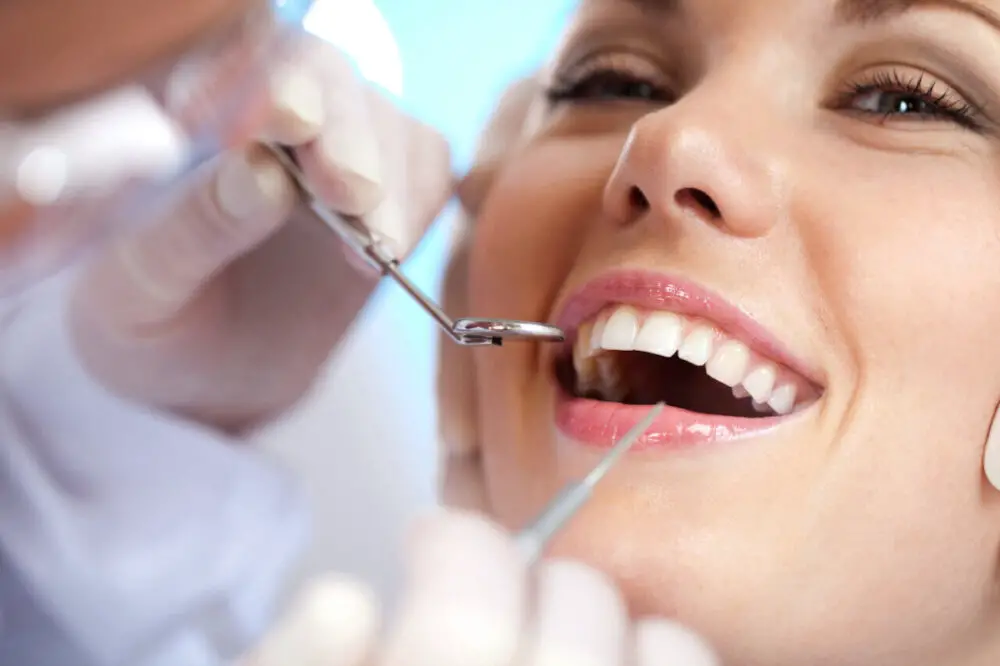
Brushing your teeth is a crucial part of maintaining good oral hygiene. To ensure that you’re getting the most out of your brushing, it’s important to use proper brushing techniques. Firstly, make sure you’re using a soft-bristled toothbrush. Hard bristles can actually damage your teeth and gums over time. Secondly, brush gently in a circular motion, paying special attention to the gum line. This helps to remove any plaque or debris that might be hiding in those hard-to-reach spots. Finally, don’t forget to brush your tongue! Bacteria can accumulate on your tongue just as easily as on your teeth, so it’s important to give it a good scrub to prevent bad breath and keep your mouth feeling fresh. In addition to using proper brushing techniques, it’s important to brush your teeth at the right times. Ideally, you should be brushing twice a day – once in the morning and once before bed. This helps to remove any build-up of plaque or bacteria that might have accumulated throughout the day. It’s also a good idea to brush after meals, especially if you’ve eaten something sugary or acidic. This helps to prevent the build-up of harmful bacteria and protects your teeth from decay. By following these simple brushing techniques and brushing at the right times, you can help to maintain good oral hygiene and say goodbye to rotten teeth for good.
Brushing your teeth may seem like a simple task, but there is a correct way to do it to ensure that your teeth stay healthy and strong. First, wet your toothbrush and apply a pea-sized amount of toothpaste. Next, position the toothbrush at a 45-degree angle towards the gum line and use gentle circular motions to brush the front, top, and back of your teeth. Be sure to brush your tongue and the roof of your mouth as well to remove any bacteria. Brush for at least two minutes, twice a day, and remember to replace your toothbrush every three to four months or when the bristles become frayed. By following these steps, you can say goodbye to rotten teeth and hello to a healthy smile.
Brushing your teeth twice a day is critical for maintaining good oral hygiene. By brushing your teeth regularly, you can remove plaque, bacteria, and food particles that can accumulate in your mouth over time. This helps to prevent tooth decay, gum disease, and other oral health problems. Furthermore, brushing your teeth twice a day can help you maintain fresh breath and a bright, healthy smile. Neglecting to brush your teeth regularly can lead to a buildup of harmful bacteria in your mouth, which can cause bad breath, tooth decay, and gum disease. So, make sure to brush your teeth twice a day to keep your teeth and gums healthy and strong.
Fluoride toothpaste is a highly effective tool for maintaining good dental hygiene. Fluoride is a naturally occurring mineral that helps to strengthen tooth enamel and prevent tooth decay. When used in toothpaste, fluoride helps to remineralize teeth that have been damaged by acids and bacteria. By brushing regularly with fluoride toothpaste, you can help to prevent cavities and maintain healthy teeth and gums. Additionally, fluoride toothpaste has been shown to be particularly effective in preventing tooth decay in children, making it an essential part of any family’s dental care routine. Overall, using fluoride toothpaste is a simple but powerful way to protect your teeth and keep your smile healthy and bright.
Flossing Techniques

Flossing is an essential part of oral hygiene that helps remove food particles and plaque from between teeth and along the gum line. To ensure effective flossing, it is important to use the right technique. One effective technique is the loop method, which involves using a piece of floss about 18 inches long. Tie the ends of the floss to form a loop, then hold it tightly between your thumbs and index fingers. Insert the loop between your teeth, then gently move it back and forth to remove any debris. Repeat the process for each tooth, using a clean section of floss each time. Another technique is the C-shape method, which involves wrapping the floss around the tooth in a C-shape and gently moving it up and down to remove any debris from the gum line. This technique is particularly effective for cleaning the back teeth, which are often hard to reach. To ensure effective flossing, it is important to floss at least once a day, preferably before bedtime. In addition, it is important to use a proper technique and to be gentle to avoid damaging your gums. With these simple techniques, you can say goodbye to rotten teeth and enjoy a healthier, brighter smile.
Flossing your teeth is an essential part of maintaining good oral hygiene. To floss correctly, start by breaking off a piece of floss about 18 inches long. Wind most of the floss around one of your middle fingers and the rest around the same finger on the opposite hand. Hold the floss tightly between your thumbs and forefingers and gently insert it between your teeth using a sawing motion. Curve the floss around each tooth in a C-shape and slide it up and down the side of each tooth, making sure to go below the gumline. Use a fresh section of floss for each tooth and be sure to floss both sides of every tooth. With proper technique, flossing can help prevent cavities and gum disease, leading to healthier teeth and a brighter smile.
Flossing daily is a crucial aspect of maintaining good oral hygiene. It helps to remove plaque and food particles that brushing alone cannot reach, preventing the build-up of harmful bacteria on teeth and gums. If left untreated, this bacteria can lead to gum disease, tooth decay, and bad breath. Moreover, flossing regularly can also help to prevent the accumulation of tartar, which is a hard and yellowish deposit that builds up on teeth and can only be removed by a dentist. Overall, flossing daily is an essential part of a healthy dental routine and should not be overlooked.
Interdental brushes and water flossers are two great tools that can help improve oral health. Interdental brushes are small brushes designed to clean the spaces between teeth, where regular toothbrushes cannot reach. They are particularly useful for people with braces or other dental appliances that trap food particles and plaque. On the other hand, water flossers use high-pressure water to clean the spaces between teeth and along the gum line. They are gentler than traditional string floss and can be easier to use for people with limited dexterity or mobility. Both interdental brushes and water flossers are effective in removing food particles and plaque, which can help prevent tooth decay and gum disease.
Diet and Lifestyle Changes

Diet and lifestyle changes play a crucial role in maintaining healthy teeth and gums. Consuming a balanced diet that is rich in essential nutrients, such as calcium, phosphorus, and vitamin D, can help to strengthen the enamel and prevent tooth decay. Foods that are high in sugar and starch should be avoided as they promote the growth of harmful bacteria in the mouth, leading to plaque buildup and decay. Instead, opt for fruits, vegetables, whole grains, and lean proteins to maintain a healthy diet that promotes good oral health. In addition to dietary changes, certain lifestyle habits can also contribute to better oral health. Regular brushing and flossing are essential for removing plaque and food particles from the teeth and gums, reducing the risk of cavities and gum disease. Limiting alcohol consumption and quitting smoking can also improve oral health, as these habits can lead to staining, bad breath, and a host of other dental problems. By making simple diet and lifestyle changes, individuals can improve their oral health and maintain strong, healthy teeth and gums for years to come.
Sugary and acidic foods can have a detrimental impact on teeth. When we consume sugary and acidic foods, the bacteria in our mouth thrive on the sugar and produce acid as a byproduct. This acid can erode the enamel, the outer layer of our teeth, leading to tooth decay and cavities. Additionally, acidic foods can directly soften and wear down the enamel. It is important to limit our intake of sugary and acidic foods and to practice good oral hygiene to protect our teeth from damage. Regular brushing, flossing, and dental checkups can help prevent tooth decay and maintain healthy teeth and gums.
Drinking water and reducing snacking are essential components of maintaining good oral hygiene. Water helps to flush harmful bacteria and food particles from the mouth, reducing the risk of tooth decay and gum disease. It also helps to keep the mouth hydrated, preventing dry mouth, which can lead to bad breath and other dental problems. On the other hand, reducing snacking can help to limit the amount of sugar and other harmful substances that come into contact with the teeth, reducing the risk of cavities and tooth decay. Instead of snacking, it’s recommended to eat a balanced diet that’s rich in fruits, vegetables, and other healthy foods that promote good oral health. By incorporating these simple practices into your daily routine, you can say goodbye to rotten teeth and hello to a healthier, happier smile.
Quitting smoking is highly important for maintaining overall health and wellbeing. Smoking is one of the leading causes of preventable deaths worldwide, and it can cause a range of health problems, including lung cancer, cardiovascular disease, and respiratory issues. Smoking can also harm oral health, leading to gum disease, tooth loss, and bad breath. Quitting smoking can improve the quality of life and reduce the risk of developing chronic diseases. It is never too late to quit smoking, and there are many resources available to help individuals quit, including nicotine replacement therapy, counseling, and support groups. By quitting smoking, individuals can improve their oral health, overall health, and quality of life.
Regular Dental CheckUps

Regular dental checkups are an essential part of maintaining good oral hygiene and preventing dental problems. Most people visit the dentist only when they experience pain or discomfort, which could have been avoided with regular checkups. A routine dental examination allows the dentist to identify and treat any dental problems early on, before they worsen and lead to more severe issues. During a dental checkup, the dentist will examine your teeth, gums, and mouth for any signs of decay, gum disease, or other dental problems. They will also perform a professional cleaning to remove any plaque or tartar buildup that may have accumulated since your last visit. By scheduling regular checkups, you can keep your teeth healthy and avoid the need for more extensive and costly dental treatments in the future. In addition to preventing dental problems, regular dental checkups have other benefits as well. For example, a dentist can detect early signs of oral cancer during a routine examination. Oral cancer is a serious disease that can be life-threatening if not caught early. By visiting the dentist regularly, you can ensure that any signs of oral cancer are detected early and treated promptly. Additionally, regular dental checkups can help identify any underlying medical conditions that may be affecting your oral health. For example, diabetes and heart disease can both manifest in the mouth, and a dentist can identify these signs during a routine examination. By keeping up with your dental checkups, you can maintain good oral health and overall wellness.
Regular dental checkups are crucial to maintaining good oral health. These appointments allow dentists to identify any potential problems early on, before they become more serious and more expensive to treat. During a checkup, dentists can also clean your teeth thoroughly, removing any buildup of plaque or tartar that can cause tooth decay or gum disease. Additionally, regular checkups can help to prevent the need for more invasive procedures, such as root canals or extractions, by catching any issues early and addressing them promptly. Overall, making regular dental checkups a priority can help you maintain a healthy and beautiful smile for years to come.
Early detection and treatment of dental problems is crucial for maintaining good oral health. By addressing dental issues early, patients can avoid more serious and costly problems down the line. For example, a small cavity can quickly turn into a painful toothache or even an abscess if left untreated. Additionally, regular check-ups with a dentist can help catch problems before they become noticeable or painful. Early detection can also help prevent tooth loss and preserve the natural structure of the teeth. Overall, investing in preventative dental care can save patients time, money, and discomfort in the long run.
Dental professionals play a crucial role in maintaining oral health. They are responsible for diagnosing and treating dental problems such as cavities, gum disease, and oral cancer. Additionally, they provide preventive care services such as teeth cleaning and fluoride treatment to help patients maintain healthy teeth and gums. They also educate patients on proper oral hygiene practices such as brushing and flossing, as well as the importance of a healthy diet. Dental professionals are committed to helping patients achieve optimal oral health and preventing future dental problems. By visiting a dental professional regularly, individuals can ensure that their teeth and gums remain healthy and free of disease.
Oral health is a crucial aspect of our overall health and well-being. It not only affects our ability to eat and speak but also impacts our self-esteem and quality of life. Neglecting oral hygiene can lead to tooth decay and gum disease, which can cause pain, infection, and even tooth loss. Rotten teeth, in particular, can have a significant impact on our health and daily life, making it difficult to chew food, causing bad breath, and leading to chronic pain and infections. Moreover, poor oral health has been linked to various systemic diseases like diabetes, heart disease, and stroke. Therefore, it is essential to maintain good oral hygiene and seek timely dental care to prevent and treat rotten teeth and other oral health issues.
If you want to say goodbye to rotten teeth, there are some simple fixes you can try. First and foremost, brush your teeth twice a day with fluoride toothpaste and floss at least once a day. Avoid sugary and acidic foods and drinks, and limit your intake of alcohol and tobacco. Try to drink plenty of water throughout the day to keep your mouth hydrated. If you suffer from dry mouth, talk to your dentist about possible solutions. Finally, make regular visits to your dentist for checkups and cleanings to catch any potential problems early on. By following these simple fixes, you can help ensure that your teeth stay healthy and strong for years to come.
If you’ve been struggling with rotten teeth, it’s time to take action and implement these simple fixes into your daily routine. Don’t let the fear of professional help hold you back from seeking the care you need. By brushing and flossing regularly, avoiding sugary foods and drinks, using mouthwash, and drinking plenty of water, you can significantly improve the health of your teeth. However, if you find that these fixes aren’t enough, don’t hesitate to seek professional help. A dentist can help diagnose the root cause of your dental issues and provide you with the necessary treatments and advice to ensure your teeth remain healthy and strong. Don’t let rotten teeth hold you back any longer – take control of your dental health today!
Conclusion
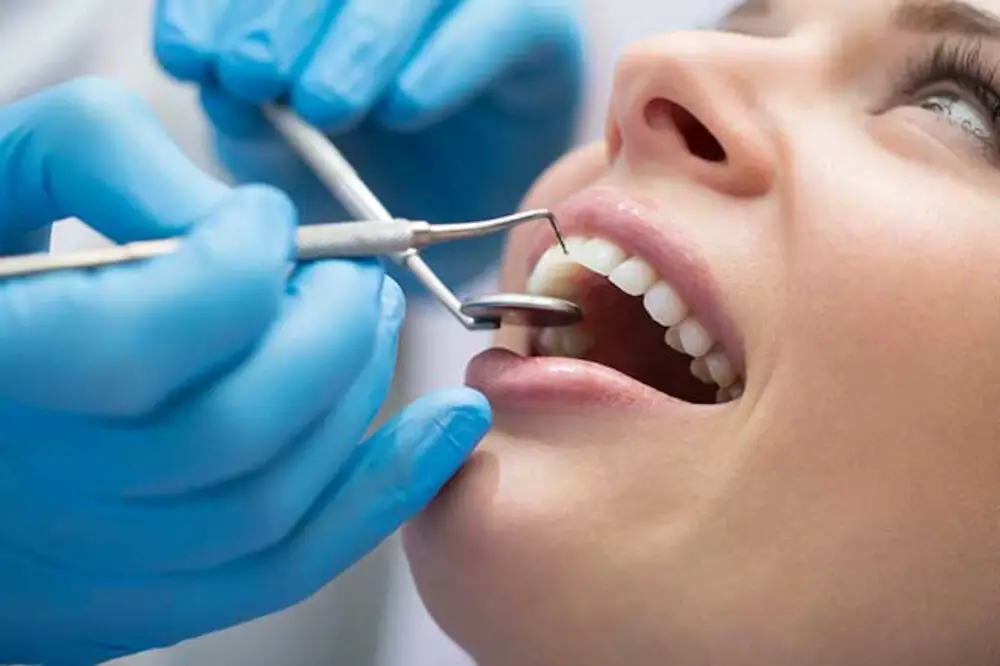
In conclusion, taking care of your teeth is essential for maintaining good oral health and preventing dental problems such as rotten teeth. By incorporating simple fixes such as brushing and flossing regularly, avoiding sugary and acidic foods, and visiting the dentist regularly, you can say goodbye to rotten teeth and hello to a healthy and beautiful smile. Remember, prevention is always better than cure, so start implementing these fixes today and make oral health a top priority in your life. Your teeth will thank you for it!
